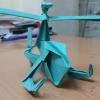Search Results
Showing results 81 to 100 of 220
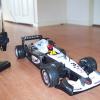
Out of Sight: Remote Vehicle Activity
Source Institutions
In this robotics activity, learners drive a remote-controlled car through a course to learn the challenges faced while trying to operate a planetary rover.

Fantastic Plastic
Source Institutions
In this activity, learners investigate the properties of plastic bags. Learners find out what happens when they slowly push a pencil through a plastic bag filled with water.
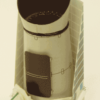
Kepler Paper Model
Source Institutions
In this activity, learners build a paper model of the spacecraft and photometer (telescope) used during NASA's Kepler Mission.
Balloon Surprise
Source Institutions
In this activity, learners discover a trick to release the air out of a balloon without popping it.
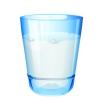
Frosty Glasses
Source Institutions
In this activity, learners explore why frost forms. They create their own frost using a solution of ice water and salt in a glass.

Test the Finger Wrinkle Hypothesis
Source Institutions
Learners create a tool to measure how well they grip a wet object when their fingers are smooth versus wrinkly. Are smooth or wrinkly fingers better at holding on to the object?
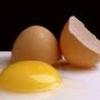
Egg-stra Strength
Source Institutions
In this physics activity, learners will investigate the strength of egg shells.
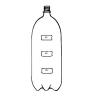
Under Pressure
Source Institutions
In this experiment, learners examine how pressure affects water flow. In small groups, learners work with water and a soda bottle, and then relate their findings to pressure in the deep ocean.

Stack 'Em Up
Source Institutions
In this simple and fun activity, learners build a tower of cups to explore distribution of weight. Learners make predictions about their towers and test their designs.
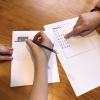
Squeezing Pictures Into Codes
Source Institutions
In this activity, learners will explore how computers represent pictures using pixels.
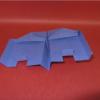
Glider
Source Institutions
In this activity, learners construct a paper glider to experiment with aerodynamic forces.
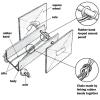
Roving on the Moon
Add to list DetailsIn this design challenge activity, learners build a rubber band-powered rover that can scramble across the room.
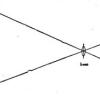
Bring it into Focus
Source Institutions
In this activity (page 2 of PDF), learners play with a lens and a piece of paper to focus an image on the paper. Learners look at different things, and see how the lenses affect the image.
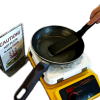
Shrinkers
Source Institutions
In this hands-on activity, learners use heat to shrink samples of polystyrene plastic (#6 recycle code). Learners compare the size and shape of the plastic pieces before and after shrinking.

Paper Drop Design Competition
Source Institutions
Using paper, paper clips, an index card, and tape, teams of learners design flying devices to (1) stay in the air as long as possible and (2) land as close as possible to a given target.

Code Cracker
Source Institutions
Whether it's the genetic code, an ancient language, or patterns of light in a distant galaxy, scientists often have to play the role of decoder.

Heat Capacity: Can't Take the Heat?
Source Institutions
Why is ocean water sometimes the warmest when the average daily air temperature starts to drop? In this activity, learners explore the differing heat capacities of water and air using real data.
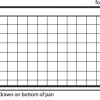
Dispersing Dispersion
Source Institutions
In this activity, learners investigate the movement caused by dispersion. Learners discover that dispersion is the random movement of objects.

Soggy Science, Shaken Beans
Source Institutions
Learners explore soybeans, soak them in water to remove their coat, and then split them open to look inside. They also make a musical shaker out of paper cups, a cardboard tube, and soybeans.

